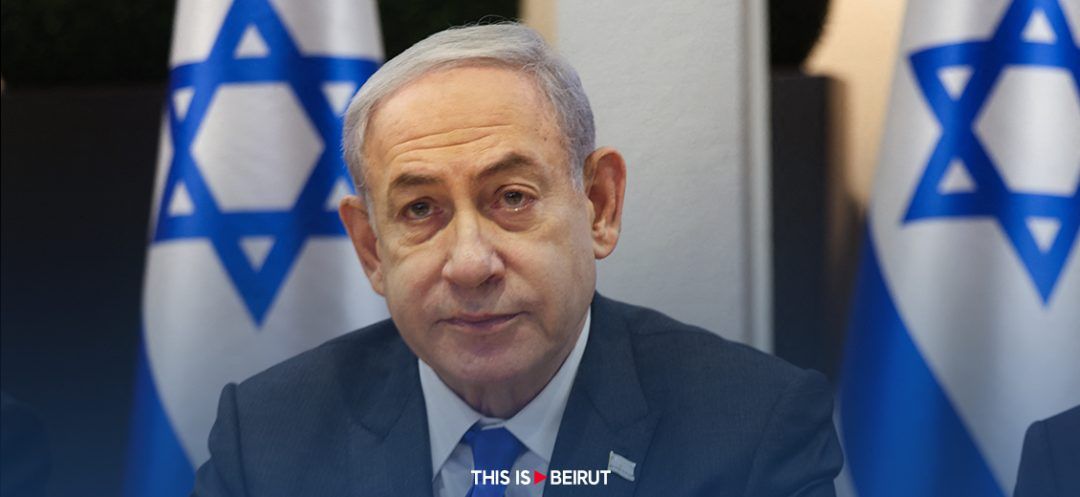- Home
- War in the Middle East
- Netanyahu Addresses Gaza Strike in First Press Conference Since March

©(Menahem KAHANA / POOL / AFP)
In a press conference held at the Defense Ministry headquarters in Tel Aviv, Israeli Prime Minister Benjamin Netanyahu addressed the Hebrew state on Saturday evening, providing an update on the ongoing military campaign against Hamas in the Gaza Strip.
Netanyahu confirmed that Israeli airstrikes had targeted key Hamas military leaders, including senior commanders Mohammed Deif and Rafa Salama, in a series of attacks that killed dozens of people at the Al-Mawasi camp for war-displaced individuals. However, he stressed that while it was "not absolutely certain" that Deif had been killed, the Israeli military would continue to pursue all Hamas leaders until its objectives are met.
Hamas leader Muhammad Deif was not killed in an Israeli attack on Khan Younis in southern Gaza, the group’s deputy leader Khalil Al-Hayya tells Al Jazeera TV.
“We say to [Prime Minister Benjamin] Netanyahu that Muhammad Deif is listening to you right now and mocking your lies,” Al-Hayya says.
The prime minister described Deif as an "arch-murderer" and the architect of the October 7 slaughter, which resulted in the deaths of many Israelis. He emphasized that the elimination of Hamas leaders is crucial to achieving Israel's war goals, including destroying the militant group, freeing Israeli hostages, and removing any future threat from Gaza.
Netanyahu also highlighted the significance of the strikes in sending a deterrent message to Iran, saying that Israel has been facing an existential threat since October 7 not only from Iran's nuclear program but also from its efforts to build a "stranglehold" around Israel. He stated that victory against Hamas is a crucial condition for victory over the entire "Iranian axis of evil".
The prime minister reiterated his commitment to ending the war, but stressed that this would only be possible if certain conditions are met. These include Israel's right to return to the battlefield until all objectives have been achieved, preventing weapons smuggling to Hamas through Egypt, maintaining control over the Philadelphi Corridor, and negotiating the release of as many captives as possible in the first round of talks.
In a direct address to his critics, Netanyahu urged patience and understanding, saying that Israel must stand strong against Hamas and its backers. He praised the Israeli military for rebuffing international pressure to end the war prematurely and for their determination to achieve their objectives.
Netanyahu confirmed that Israeli airstrikes had targeted key Hamas military leaders, including senior commanders Mohammed Deif and Rafa Salama, in a series of attacks that killed dozens of people at the Al-Mawasi camp for war-displaced individuals. However, he stressed that while it was "not absolutely certain" that Deif had been killed, the Israeli military would continue to pursue all Hamas leaders until its objectives are met.
Hamas leader Muhammad Deif was not killed in an Israeli attack on Khan Younis in southern Gaza, the group’s deputy leader Khalil Al-Hayya tells Al Jazeera TV.
“We say to [Prime Minister Benjamin] Netanyahu that Muhammad Deif is listening to you right now and mocking your lies,” Al-Hayya says.
The prime minister described Deif as an "arch-murderer" and the architect of the October 7 slaughter, which resulted in the deaths of many Israelis. He emphasized that the elimination of Hamas leaders is crucial to achieving Israel's war goals, including destroying the militant group, freeing Israeli hostages, and removing any future threat from Gaza.
Netanyahu also highlighted the significance of the strikes in sending a deterrent message to Iran, saying that Israel has been facing an existential threat since October 7 not only from Iran's nuclear program but also from its efforts to build a "stranglehold" around Israel. He stated that victory against Hamas is a crucial condition for victory over the entire "Iranian axis of evil".
The prime minister reiterated his commitment to ending the war, but stressed that this would only be possible if certain conditions are met. These include Israel's right to return to the battlefield until all objectives have been achieved, preventing weapons smuggling to Hamas through Egypt, maintaining control over the Philadelphi Corridor, and negotiating the release of as many captives as possible in the first round of talks.
In a direct address to his critics, Netanyahu urged patience and understanding, saying that Israel must stand strong against Hamas and its backers. He praised the Israeli military for rebuffing international pressure to end the war prematurely and for their determination to achieve their objectives.
Read more



Comments